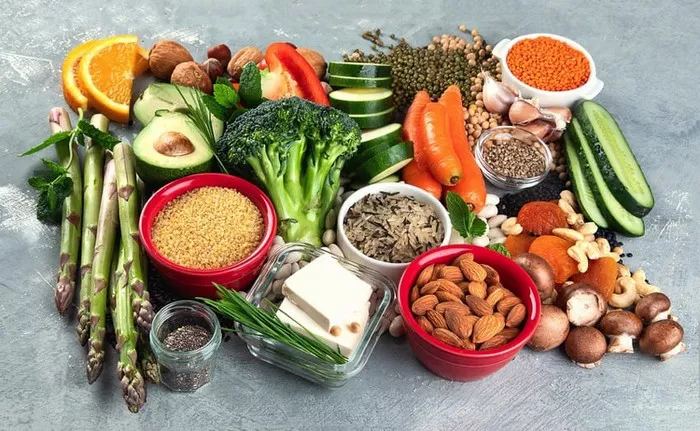In recent years, there has been a significant shift toward plant-based diets, primarily driven by health, environmental, and ethical concerns. As more people choose to reduce their meat consumption, plant proteins have become a popular alternative. Common sources of plant protein include legumes, grains, nuts, seeds, and soy products. However, as with any dietary change, it is essential to consider the implications of consuming high amounts of plant protein. This article delves into whether excessive intake of plant protein can be detrimental to health, examining the nutritional aspects, potential health benefits, and possible concerns associated with high plant protein consumption.
Understanding Plant Proteins: Sources and Benefits
Plant proteins come from a variety of sources, each offering a unique nutritional profile. Unlike animal proteins, most plant proteins are considered incomplete, meaning they do not contain all essential amino acids needed by the body. However, consuming a diverse range of plant-based foods can provide a complete amino acid profile.
Primary Sources of Plant Protein:
Legumes: Beans, lentils, chickpeas
Grains: Quinoa, rice, whole wheat
Nuts and Seeds: Almonds, chia seeds, flaxseeds
Soy Products: Tofu, tempeh, edamame
Nutritional Benefits of Plant Proteins:
Fiber Content: Most plant proteins are high in fiber, which aids in digestion and satiety.
Low in Saturated Fats: Plant proteins typically contain lower levels of saturated fats compared to animal proteins.
Rich in Phytonutrients: Plant sources of protein often come packed with beneficial phytonutrients and antioxidants.
Is Too Much Plant Protein Harmful?
While plant-based diets are associated with numerous health benefits, including a lower risk of heart disease, diabetes, and certain cancers, concerns arise when the intake of plant protein is disproportionately high. It’s crucial to understand the potential impacts of consuming excessive amounts of plant protein.
Digestive Health and Plant Protein
High intake of plant proteins, particularly from legumes and grains, increases dietary fiber. While fiber is beneficial for digestive health, excessive consumption can lead to gastrointestinal discomfort, such as bloating, gas, and constipation.
Protein and Kidney Health
The relationship between protein intake and kidney function has been extensively studied, primarily focusing on animal protein. High protein diets are sometimes associated with increased strain on the kidneys, particularly in individuals with pre-existing kidney conditions. However, plant proteins may have a less pronounced effect on kidney health due to their lower levels of certain amino acids that stress the kidneys.
Impact on Nutrient Absorption
Plant proteins often contain antinutrients, such as phytates and tannins, which can inhibit the absorption of minerals like iron, calcium, and zinc. High consumption of plant proteins without proper preparation methods, such as soaking and fermenting, can potentially lead to deficiencies in these nutrients.
Balancing Plant Protein Intake: Recommendations for a Healthy Diet
To maximize the health benefits while minimizing potential risks, it is important to balance plant protein intake with other dietary needs.
Incorporating a Variety of Protein Sources
Diversifying protein sources ensures a complete amino acid profile and prevents the excessive intake of any single type of protein. Including a mix of legumes, grains, nuts, seeds, and, if applicable, animal proteins can provide balanced nutrition.
Managing Fiber Intake
To avoid digestive issues associated with high fiber intake from plant proteins, increase fiber gradually in your diet and ensure adequate hydration, which helps manage fiber digestion and prevent constipation.
Preparing Plant Proteins Properly
Adopting preparation methods such as soaking, sprouting, and fermenting can reduce the levels of antinutrients in plant proteins, enhancing the bioavailability of minerals and improving digestion.
Considering Individual Nutritional Needs
Individual dietary requirements can vary based on age, activity level, health conditions, and specific nutritional needs (such as during pregnancy or for athletes). Consulting with a dietitian or nutritionist can help tailor dietary choices to meet these individual needs.
Conclusion: The Balanced Approach to Plant Protein
Plant proteins are an integral part of a healthy diet and offer numerous health benefits. However, as with all nutrients, moderation and variety are key. Consuming a balanced amount of plant protein as part of a diverse diet helps prevent potential negative health effects while providing essential nutrients. By understanding the sources, benefits, and ways to integrate plant proteins healthily into your diet, you can enjoy the advantages of plant-based nutrition without overconsumption concerns. Embracing a balanced approach ensures that you reap the health benefits while mitigating the risks associated with excessive intake of any one food group.
[inline_related_posts title=”You Might Be Interested In” title_align=”left” style=”list” number=”6″ align=”none” ids=”7994,7872,7838″ by=”categories” orderby=”rand” order=”DESC” hide_thumb=”no” thumb_right=”no” views=”no” date=”yes” grid_columns=”2″ post_type=”” tax=””]
































